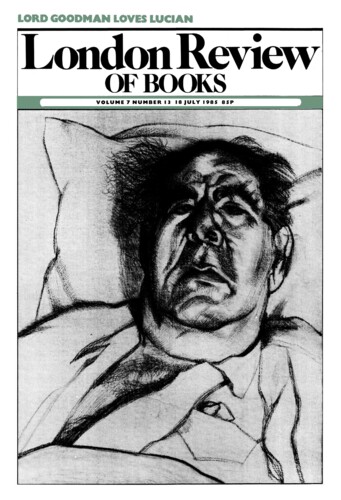An End to Anxiety
Barry Stroud, 18 July 1985
Wittgenstein predicted that his work would not be properly understood and appreciated. He said it was written in a different spirit from that of the main stream of European and American civilisation, which he found alien and uncongenial. He expressed indifference to what he saw as his fate in such a culture. How has it turned out so far? How much of what goes on in philosophy today is the result of a serious response to Wittgenstein? The question is more difficult than it looks, and not just because of its size. He is a major philosopher of this century, but on the whole the significance of his work as he conceived of it has not really been acknowledged and absorbed by the philosophy of our day. His influence, however great, has been indirect. It has usually led others in directions precisely opposite to the spirit of his own teaching.

